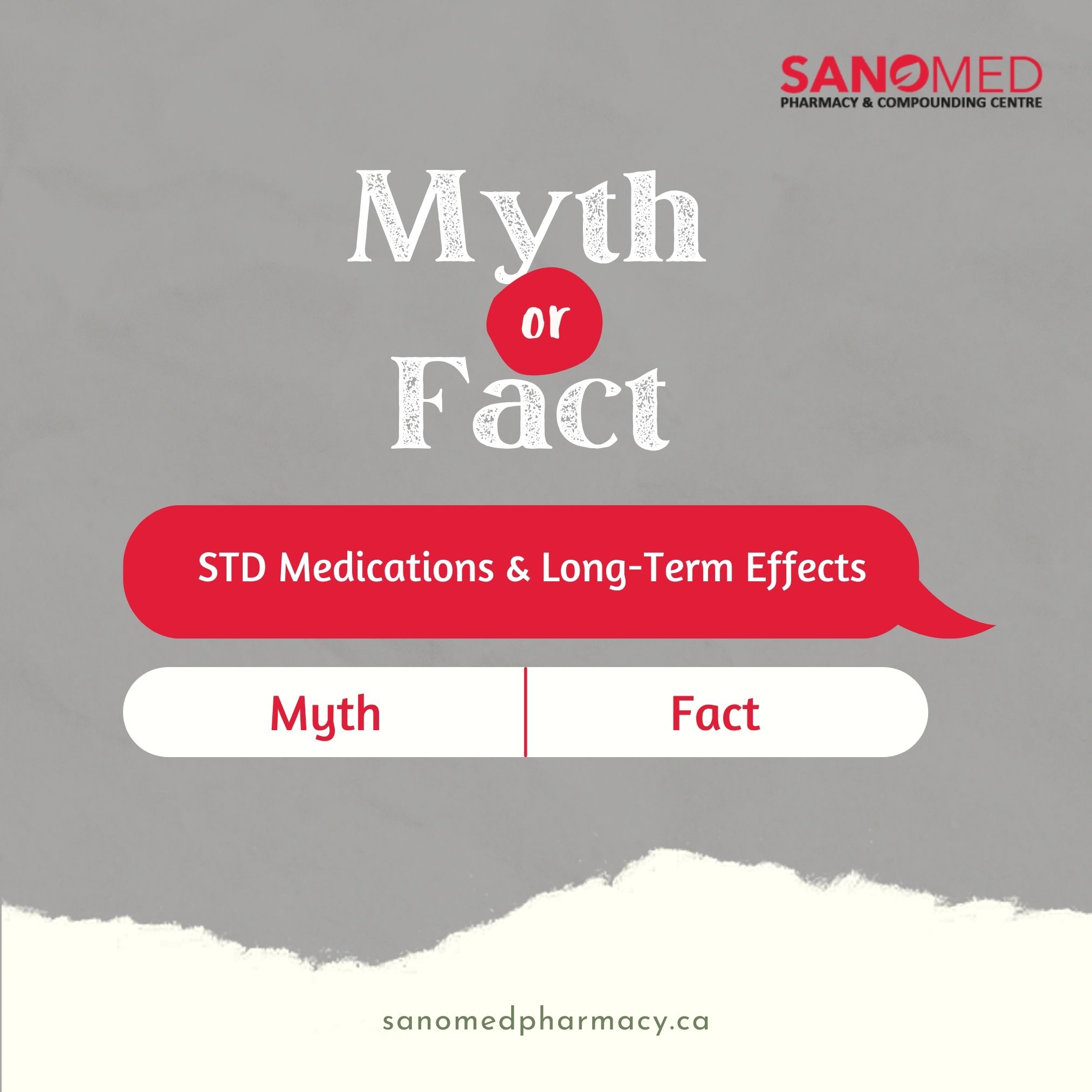When it comes to sexually transmitted diseases (STDs), there’s a lot of misinformation out there—especially regarding treatments and medications. Misunderstandings can lead to unnecessary fear, delay in seeking treatment, or even improper use of medication. Let’s clear up some of the most common misconceptions about STD medications and explore the long-term effects of these treatments.
Misconception 1: “Antibiotics cure all STDs”
While antibiotics are highly effective for bacterial STDs like chlamydia, gonorrhea, and syphilis, they do not work for viral infections like HIV, herpes, or HPV. Viral STDs cannot be “cured” with antibiotics, but they can be managed with antiviral medications. Knowing the difference between bacterial and viral STDs is crucial for understanding treatment options and expectations.
Misconception 2: “You can stop medication once you feel better”
One of the biggest mistakes people make is stopping their STD medication once they start to feel better. This can cause the infection to come back or even lead to antibiotic resistance, especially in cases of gonorrhea. Always finish the full course of antibiotics or antivirals as prescribed, even if symptoms disappear.
Misconception 3: “Once treated, you can’t get the same STD again”
Many people believe that once they’ve been treated for an STD, they’re immune to it. This is false. You can get the same STD again if exposed. This is especially true for bacterial STDs like chlamydia and gonorrhea. It’s important to practice safe sex even after treatment and get regularly tested.
Misconception 4: “STD medications have severe long-term effects”
Most STD medications, particularly antibiotics like azithromycin and doxycycline, are safe when taken as prescribed. However, improper use, such as not completing a full course, can contribute to antibiotic resistance, making future infections harder to treat. Antiviral medications, often used for herpes or HIV, are generally safe for long-term use but may have side effects like nausea or headaches. It’s important to talk to your healthcare provider about any concerns regarding the long-term use of antiviral medications.
Misconception 5: “Natural remedies can replace medications”
Some people believe natural remedies like garlic, herbal teas, or essential oils can cure STDs. While these may provide some relief from symptoms, there is no scientific evidence that natural remedies can cure an STD. If you suspect an STD, seek medical treatment immediately. Delaying proper care could lead to serious complications.
When to Seek Professional Help
If you’re unsure about your treatment or experiencing side effects, it’s essential to speak to a healthcare provider. Never self-diagnose or stop medication without guidance. SanoMed Compounding Pharmacy of Toronto offers consultations and provides prescribed medications in a private and discreet environment, ensuring you get the care you need.

